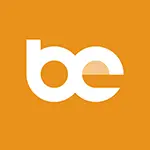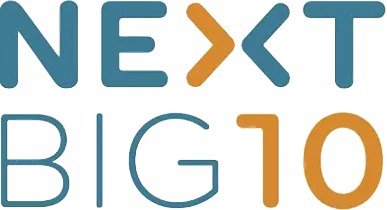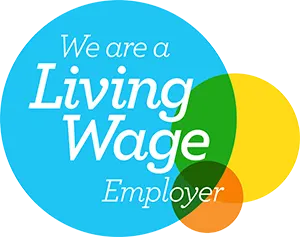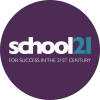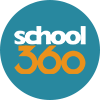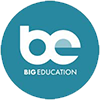To find out more about the Trivium model at Ladybridge High, read part one of this blog.
What’s this all about?
This is the first blog about our journey towards achieving the vision of the Ladybridge Trivium. Our thinking behind the trivium is summarised here.
The purpose of this blog is twofold: 1) to document our journey and 2) to provide support and stimulus for other educators who choose to take a different path, away from the narrow focus on GCSE outcomes that is the product of the simplistic accountability system in UK schools.
This is primarily aimed at other educators, rather than our parents, learners or staff, who we communicate with everyday in a variety of ways. This is an honest, open reflection on the successes and challenges of balancing traditional educational approaches with more progressive ideas within a relatively large, multicultural, comprehensive state school in Bolton, England. This first blog is aimed at setting the scene and is, therefore, pretty general. Future blogs will be more rooted in the specifics of what we are doing, what is going well and what is not working as well as we would like it to.
Some of the things that we do differently as a school are about pedagogy and others are about relationships. It is difficult to disconnect these… If you are teaching in a traditional, teacher-led manner, the relationships are likely to be pretty traditional too. Equally, if you’re adopting a more progressive approach, with learners taking more responsibility for their own learning, it’s likely to involve a different type of relationship between teacher and learner. Some of the blogs will explore these relational aspects to learning and leadership.
There are other secondary state schools in the UK that have embraced a progressive philosophy and that have developed clear, consistent and effective pedagogies that are different from the norm. Probably the two most obvious examples are the XP schools and School21. There are also many schools in the independent sector who have a more holistic approach, including King Alfred School in London. What makes us different from XP and School21 is that we are trying to change an existing state secondary school rather than start this journey as a new school. Andy Sprakes (Executive Headteacher from the XP Trust) rightly said to me when I met him that starting as a new school does not make it easy! I’m sure he’s right… However, I think the year on year evolution of a challenging, 1000 plus, state school into a school with a new vision based on developing learner agency is a tale worth telling. These blog posts will aim to tell that tale!
Where did we start?
I started as headteacher of Ladybridge in April 2019, so this Easter I’ll have been in the role for four years. I believe that the never ending debate about whether the goals of education are best achieved by traditional, teacher-led methods or by young people taking control of their own learning is a false dichotomy. In my opinion, a true, rounded education involves a bit of both – this was the attraction of the trivium. When I read Martin Robinson’s book Trivium 21C, it excited me that hundreds of years ago educational approaches were developed that had distinct elements across this spectrum of teacher led and learner led education. I thought I had found the answer to everything educational! The trivium also reminded me of influential learning I had done previously with Giles Barrow on the Educational Continuum.
So… Before starting the job, I decided that I wanted us to adopt a trivium educational philosophy. Other aspects of our culture and mission were co-constructed with staff, learners, parents/carers and governors, including our mission, core beliefs and the qualities we seek to develop in our young people. We call all of this stuff, and the trivium, The Ladybridge Way. However, the educational philosophy part, the trivium, was a non-negotiable that I brought to the school. I’d spent years teaching, observing colleagues, reading about education and debating with other educators about pedagogy. All this learning and reflection led me to passionately believe that the trivium could be a wonderful way to prepare learners for exams AND to prepare learners for life. This, in essence, is what we are trying to achieve. If you read the mission statements of pretty much all schools on planet earth they would say something similar. However, the demands of the cliff edge, Ofsted focused accountability system we have in the UK can lead schools to primarily focus on exam results alone.
When functioning well, the trivium involves this kind of process:
- KNOWLEDGE – Learn something new from an expert (this does not have to be a teacher).
- EXPLORATION – Debate, discuss, form your own ideas and gain authentic experiences (sometimes outside the classroom).
- COMMUNICATION – Communicate your ideas to others, and perform publicly, in different ways to a variety of audiences.
In my head this was all very straightforward… I thought by communicating this clearly to staff and learners we could achieve this vision in a short period of time. It did not work out quite as simply as that…
How much progress did we make prior to the pandemic?
We needed to walk before we could run and there were several elements of the Knowledge pillar that needed development before we focused strongly on developing learner agency through the Exploration and Communication pillars. I had two and a half terms at the school prior to the pandemic – the focus during this time was on the following areas:
- Building a learning culture – agreeing our core beliefs and our mission.
- Improving behaviour and relationships – setting up RISE (our hybrid provision of mainstream & alternative curriculum) and developing a new behaviour and relationships strategy.
- Responsive teaching – encouraging teaching staff to be curious about how much learning has taken place through a variety of formative assessment techniques.
Training with teaching staff focused on teaching for understanding and the development of knowledge, as opposed to teaching through a series of activities to occupy young people to ensure they behave well. This was influenced by Rosenshine’s Principals, Tom Sherrington and cognitive science. Responsive teaching was the primary focus of our work. Unsurprisingly, the work of Dylan William was an influence here, along with reading ‘Responsive Teaching’ by Harry Fletcher Wood and ‘Making Good Progress’ by Daisy Christodoulou. To be honest, pre-Covid, I feel that we were making headway towards more effective teaching and learning of knowledge but we hadn’t really begun to develop the Exploration and Communication pillars. In the early phase, there was a misconception that the Exploration pillar was simply about doing more trips. Also, some of the first presentations I saw at the school indicated that the vision of the Communication pillar was not going to be achieved overnight. It was increasingly clear that this was going to take time…
Isn’t it easier to just focus on exams?
In short, yes, it probably is! However, we consciously chose to adopt a distinctive set of beliefs, a clear mission around learner agency and preparedness for life and a trivium educational philosophy. If you commit to this you need to then make it happen. Teachers don’t choose to work in education to make numbers look better or to make Ofsted happy. Teachers want to inspire young people to learn and achieve things in their future lives and also to be good, decent humans. Only caring about exam results and Ofsted was simply not an option for us but I don’t deny that this would have streamlined and simplified things.
In schools, there are always competing priorities. It was clear early on that our emphasis on the three pillars of Knowledge, Exploration and Communication was adding complexity to our work and leading to some difficult decisions about what we prioritise. I confess that things are probably simpler if you just want to build academic knowledge to pass exams. We want this blog to be honest and authentic – our trivium approach has made our work more complex and challenging. I would also argue that ultimately it makes working here more rewarding and exciting too.
We could have accelerated the pace of change by purely focusing on WHAT we needed to do; however, we took the view that we needed to take our time to consider WHY we wanted to take this path. I also believe it’s really important to collaboratively decide HOW we travel down the path, rather than all the key decisions being made by me and the senior team. The big WHY and HOW questions related to the school culture. When I started at Ladybridge, it appeared that the school had a traditional ‘top down’ culture of the senior team making all the key decisions. This is something that needed to change. To achieve the vision of the trivium, we need creativity and professional autonomy. This is not going to stem from excessive directives and micromanagement. Future blogs will focus on the leadership dimensions of bringing the trivium to life.
What were some of the key steps?
Firstly, we needed time to work collaboratively with staff to develop a trivium approach. Additional time was created by lessons being 10 minutes shorter on a Tuesday, leading to an early finish on a Tuesday and creating additional time for training. I’m not sure the wording is particularly significant, but we generally refer to the Tuesday afternoons as Continuous Professional Learning (CPL) time. I decided to have a different senior leader responsible for each pillar of the trivium. We did this because we had three different senior leaders that each had expertise and passion in aspects of education that were strongly aligned with each pillar. I thought each of the senior leaders brought something different to the table and wanted all of them to be involved in bringing the trivium to life. It did add complexity to the work as trying to agree how to use the Tuesday time is harder the more people are sat around the table! Generally we have alternated between the following activities on a Tuesday afternoon:
- Department curriculum planning
- Trivium training
- Personal Development training
There have also been sessions that are left open for teachers to work independently on any aspect of their professional learning or to attend shorter training sessions (Insights). Again, being honest, these opportunities have been limited but we plan to build this in more consistently next year. Thrown into the mix is the usual departmental stuff of standardisation and moderation of summative assessments. Time will always be our most precious resource. In future blogs we will reflect on the use of the Tuesday afternoons for trivium training and be open about what has not gone well, as well as the successes.
One of the most important things we did was to watch “Most Likely To Succeed”, a film about High Tech High in San Diego. The film explores the shortcomings of conventional education and tells the story of how the school has done things differently. We paid for the film’s licence and watched it at our local cinema. This experience was far more impactful than putting it on the screen in the school hall.
We’ve worked with the Comino Foundation to create real world learning opportunities for our learners. Some of these have been extended projects that encompass all elements of trivium learning and others have been shorter projects/events. The Comino projects have been brilliant but they have also been different to what most learners are experiencing most of the time. We are now working on scaling these experiences up to entire year groups, rather than individual classes of learners.
Another key step was developing a cohesive understanding of trivium learning across all members of the senior team. To help achieve this, we had a weekend of experiential learning involving the poet Mike Garry and historian Andrew Davies. We learned from experts, produced our own poetry and had to communicate our learning to others. We were all out of our comfort zone, no one more so than me!!!
Less adventurous than a weekend with Mike Garry, was restructuring our curriculum to revert to a three year key stage three. The additional time at key stage three enables us to learn at greater depth through a trivium approach. We have also re-organised the school day to move away from 50 minute lessons (it was only 40 minutes on a Tuesday!) to 60 minute lessons. There are some double lessons within the timetable, giving an extended chunk of time to take time over the learning process.
Where are things now?
This year we have been explicit with staff about the difference between Trivium Projects (Project Based Learning) and Everyday Trivium approaches (see appendix below). We want both of these happening at Ladybridge (done to quality). Most of the learning is far closer to Everyday Trivium rather than Trivium Projects. We have no set proportion of each that we want for the future (is it 50:50? 80:20 to Everyday:Project, we don’t know yet!). There is both more Everyday Trivium and Project Based Trivium than ever before, and the quality is generally higher than previously, but we are still years from where we want to be.
We are currently working on a project called ‘Bolton – Rewind – Regenerate?’ which aims to develop our learners’ understanding of the history of Bolton – a once important town, central to the cotton industry. Learners will go on to explore the difficulties faced by the modern day town and use the knowledge they have developed to reimagine a Bolton fit for the future. Key to the project is connection with external partners and agencies. The project involves our learners working with The Smithills Estate, Bolton Council, Libraries and Museum, Creatives Now (an art collective for young people in the town), Bolton School, Amazon UK, Turn Up The Value, Town Planners, Swan Lane Mill alongside the film director and residents who appeared in the film ‘The Fabric Of Bolton’. We hope that such a broad range of connections will help to provide an authentic experience for our learners and demonstrate to them that they can be change makers within their community and play their part in making the world a better place. Their work will culminate in an exhibition of their learning in empty shops in Crompton Place Shopping Centre. This is the perfect setting for an exhibition that questions the role of the town centre of the future as the building is scheduled to be demolished soon and replaced with a mixed development of town centre apartments and shops funded by Chinese investment.
One whole year group project that demonstrated real improvement from previous exhibitions of learning was the Holocaust Memorial project with Year 9, which culminated in a brilliant exhibition earlier this year. It’s not just about Humanities! All departments are pushing forward with real world learning projects and experiences. Future blogs will explore some of this work.
One of the next steps is to better connect the trivium training so the pillars are less discrete. The separation helped to provide some early momentum but could be limiting the cohesive vision and implementation of trivium learning.
What about Ofsted?
Ofsted are not our enemies and we used the feedback from our 2021 inspection to guide our curriculum changes. Generally a trivium approach aligns well with the new Ofsted framework, which focuses on teaching for understanding, learning in greater depth and personal development. This was reflected in our successful inspection in November 2022. There are understandable frustrations across schools in the variability of judgements of individual inspectors but, overall, the current Ofsted framework is a step in the right direction towards a more holistic educational experience.
What will be in the future blogs?
Here’s a list of future blogs we are planning:
- Trivium Projects
- Developing oracy with Voice21
- Instructional coaching
- Personal Development and the Leadership Academy
- Relational aspects of learning
- RISE – Alternative Curriculum
- Dimensions of leadership
Paddy Russell, LadyBridge High School
